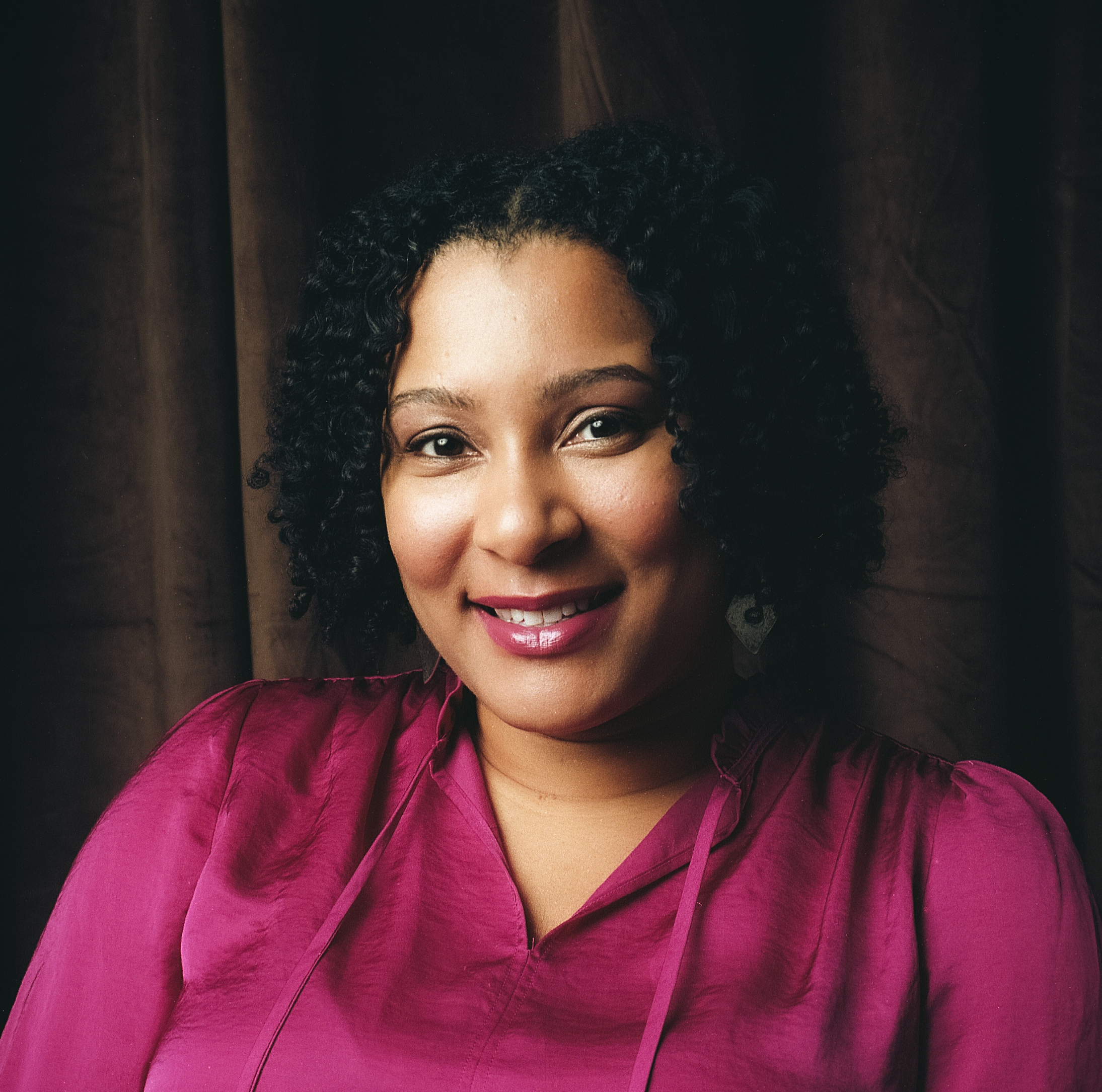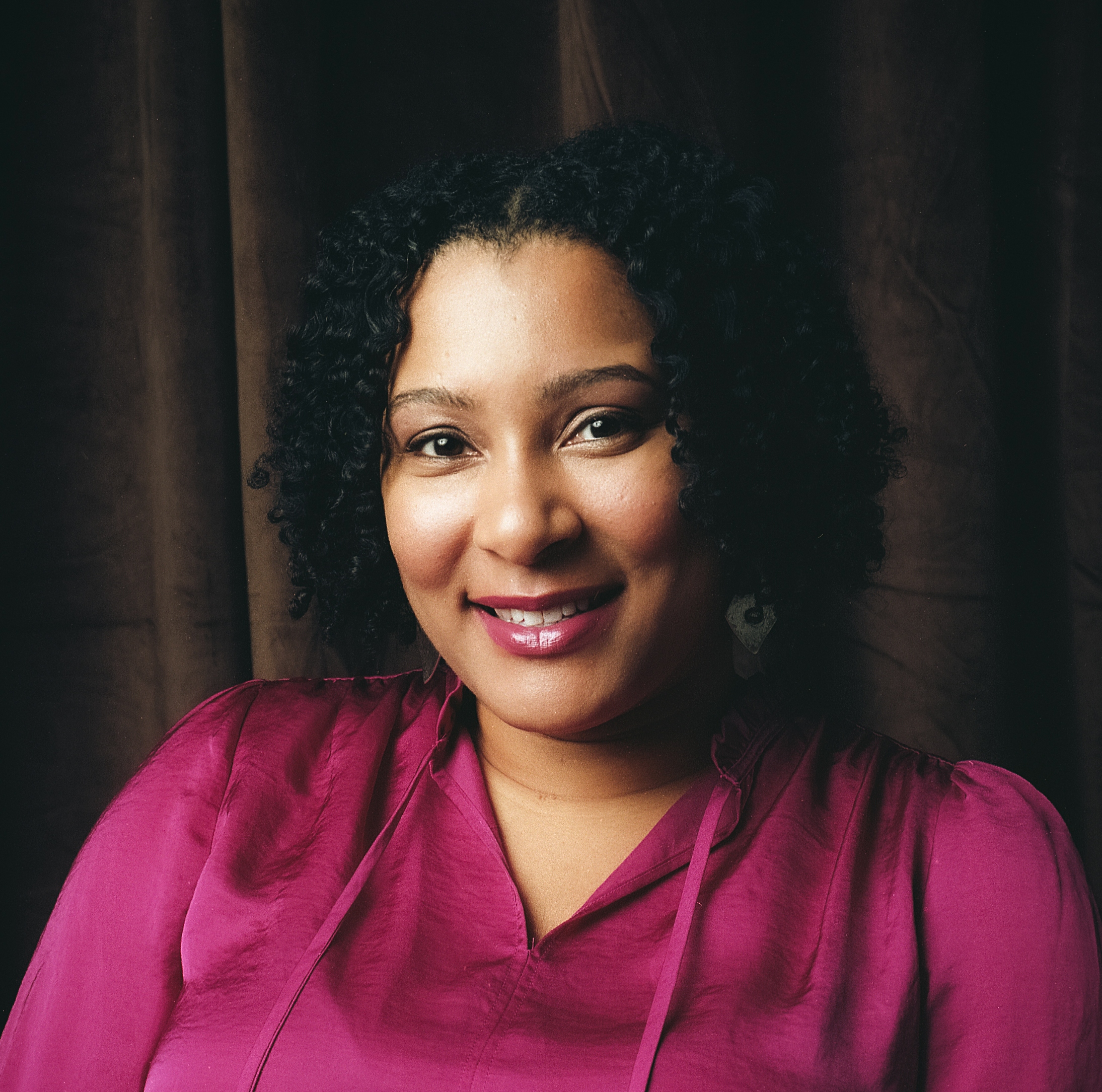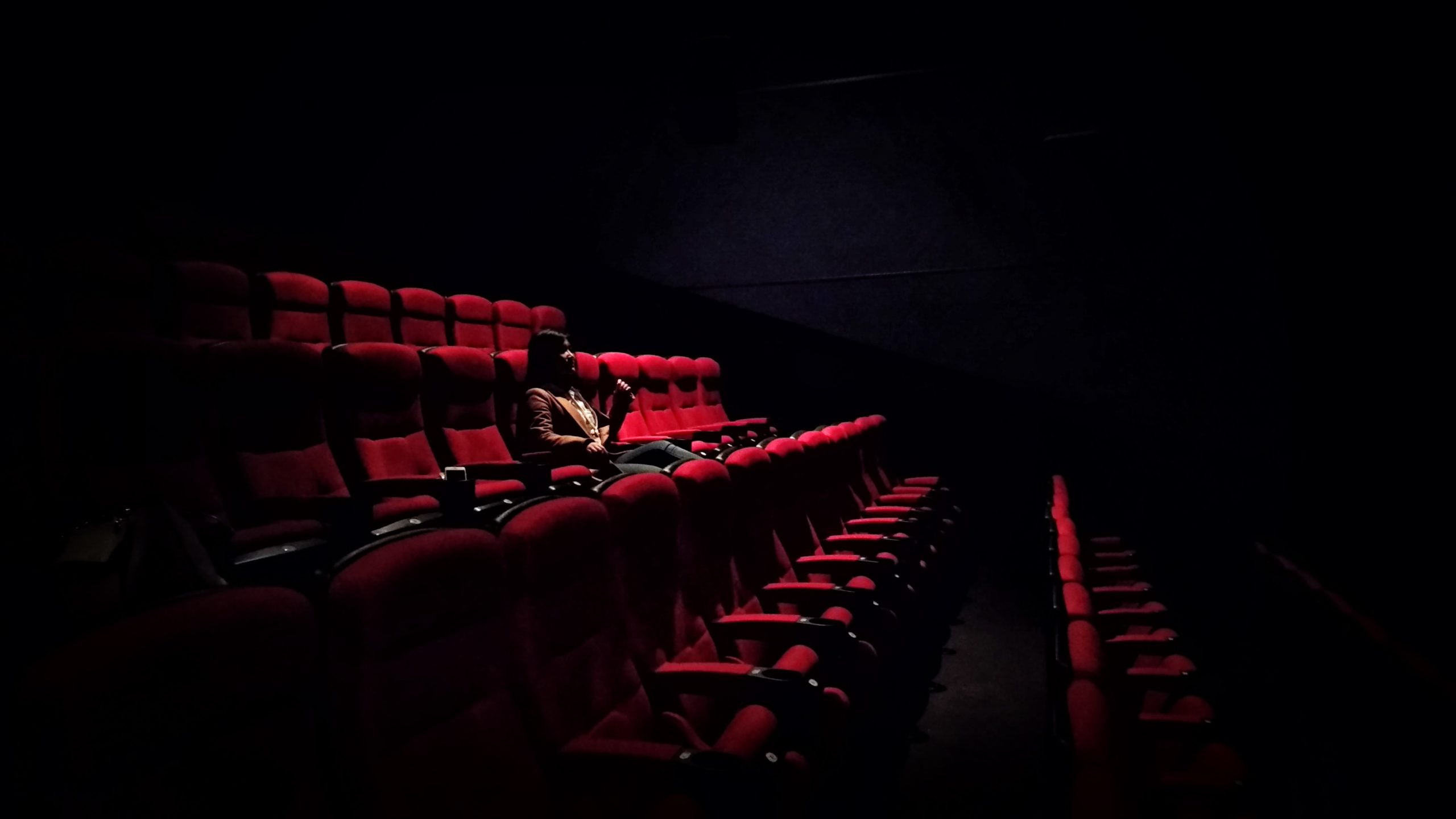
Critic Spotlight: September 2025
Kelundra Smith
Primary Outlet: American Theatre

ATCA profiled Smith back in April 2021, and we wanted to catch up with her activities since then. She has guided the annual Edward Medina Prize for Excellence in Cultural Criticism that has been awarded since 2022, assumed the position of Director of Publishing at Theatre Communications Group in 2024, and wrote a play, “The Wash,” that has been produced since the summer of 2024 in Atlanta, St. Louis and New York, with another scheduled for November in Chicago. Earlier this year, Smith was profiled in Critical Minded’s series with 18 other critics. (Medina Prize winners Brittani Samuel, Christian Lewis and Gloria Oladipo were among them.) Critical Minded, a Medina Prize supporter along with Foundation ATCA, is a U.S. grantmaking and learning initiative supporting cultural critics of color. Smith discusses her career and the early and important work of ATCA’s Committee on Belonging, Equity, Inclusion and Diversity.
This Critic Spotlight marks the revival of this series since its most recent article in March 2022. The ATCA’s Committee on Belonging, Equity, Inclusion and Diversity is committed to illuminating the work of art critics and journalists from underrepresented groups (women, people of the global majority, trans, and non-binary). ATCA members interested in joining the BEID committee should contact David Chávez.
What first theatrical experience captivated you?
Two things came to mind. One: In Atlanta, the Atlanta Ballet performs at the Fox Theater every Christmas, “The Nutcracker.” When I was growing up, school used to take us to “The Nutcracker” every fall for a field trip. I remember sitting at the Fox Theater, which has, I guess, a Moroccan or maybe Arabian sort of theme. It’s an old palace theater and the ceiling looks like the sky — like the clouds are moving across the ceiling. I remember, very distinctly, being about 5 or 6 years old, looking at that ceiling and wondering how on earth they made it move. That was kind of the first spark.
Then, in Atlanta, there is The Center for Puppetry Arts. And I grew up on “Sesame Street” and “The Muppets” as a 1990s and 2000s kid. I remember seeing shows at The Center for Puppetry Arts as a little girl. My mom would take me. My school would take us too.
Those were my earliest memories of being really enchanted. I knew people were doing these things, but there was this idea of transformation. I didn’t have the words at that age, but I think the idea that you could be like a person and a character was really cool to me.
Then how did you find a love of writing?
I was good at English from an early age. I started reading early, like, four years old. My mom and dad said I was forming complete sentences by age two. I was always into language. It came easily to me.
The first spark I had that I was good at writing was when I was seven. I had a teacher who would give us these things called story starters. They were writing prompts where she would start a sentence, and you had to finish it. You would have to write a page. But I would write, pages and pages and pages. I was always a Chatty Cathy. I noticed that writing was when I didn’t get in trouble. It was the thing that I was praised for because I was exceptional at it. So, I was like, “Oh, I should do more of this.”
In elementary school, we had this after-school program, but my friend and I would hang out in one of the teachers’ classrooms before we went to the program. She had “The Complete Collected Poems of Maya Angelou.” So, at 10, I started reading Maya Angelou. We went to her classroom and read those poems every day until we finished the book. That was also a spark for me. I started writing poetry. By high school, I wanted to be the editor-in-chief of Seventeen magazine. It was my true north.
What was the instance where you found you could fuse the writing with theater?
Much later. In college, before my senior year, I studied in London. I was a theater and journalism double major at the University of Georgia. Doing two things felt very separate to me. I had been questioning these as I was getting closer and closer to my senior year: Where is the fusion of this?
So, while in London, we had to take a performance critique class. That’s when a light bulb went off. I could do this — go and see productions and write responses to them. During that trip, we saw all these different types of performances: services at Westminster Abbey and Saint Paul’s Cathedral of religion as performance; shows at the Royal Academy of Dramatic Art, the National Theatre and The Globe. It was a wide range. Then I interned at London’s Arcola Theatre, which is in Hackney — super funky and contemporary.
When I came back to the U.S., I went on Google and typed “arts journalism.” It hadn’t even occurred to me that it was a thing. Then arts journalism master’s degree programs came up — at NYU, Syracuse University and the University of Southern California at the time. I applied to all of them, and I ended up going to Syracuse. I received my master’s in arts journalism with a focus in theater, contemporary visual art, and dance.
What are two of the biggest challenges in your career and being a critic, particularly at the current moment?
In my career, there have been two major challenges. One was my fear of committing to arts journalism and the second was the lack of full-time work with full benefits. I entered this profession at a time when we were already seeing the contraction of the media landscape. This was post-recession during President Obama’s second term. It was a whole different world from what the media industry had been before. So, I was reviewing and making $100 to $125 per review. I freelanced for years. There was no full-time job to be found. I applied for positions and got to the final rounds for a few jobs, but nothing ever came through. In 2017, I had a conversation with a dear friend. I said, I’ve got to do something else because this takes up too much of my time. I was doing it in addition to a full-time job all the time — and in the pandemic.
At that point, I freelanced as a theater critic for The Atlanta Journal-Constitution. I believe I was the first Black woman to be a regular freelance theater critic for the AJC.
Anyway, I had that conversation with a friend in 2017. Then, in 2020, I had one of the biggest shocks to my system. I realized I had spent almost all of my 20s, Thursday through Sunday, at the theater or writing a review. Then all of a sudden there was nothing. That was a real reckoning. The time lost — oh my God, what have I done to my life? Was it worth it?
What was your answer?
Well, what else could I do? By that point, I had made a bit of a name for myself. I was doing arts journalism and had several tiresome full-time jobs. My full-time jobs had paid my bills. I still wanted to have a life — go on vacation from time to time. So, I depended on my freelance money to do that. With the pandemic, this thing I had spent all my time doing disappeared overnight. Then I started writing plays.
Since I started playwriting, I stopped reviewing. But people still ask me, “Are you ever going to go back to criticism? We need you. Where are you?”
I would like to mentor people and try to train people to replace me, but the pay is so bad. It’s hard to convince people to go into something that they can only make $150 a byline doing.
What is it like making that switch, from critic to playwright?
I don’t see it as a switch because I think I’ll go back to criticism at some point, but I’ll have a different relationship to it.
What insights has it given you?
The biggest insight is that criticism and theater are two writing or two storytelling mediums that can be overly rigid about form. Now, I am more interested in people — and I’ve always been drawn to artists — who play with form. But now I’m even more keen on this because I feel we get stuck in these formulas.
In playwriting, playwrights are pumped out by MFA programs. In criticism, they’re pumped out by J-school programs. Write into these formulas how a thing is written. You can read 30 plays, and, if they’ve been written in the last decade, they all kind of follow the formula. That is, there will be a bunch of information in the first ten pages, and then they spend the rest of the play working out what happened in these first ten pages. But plays weren’t always written that way. We used to have plays written in all kinds of crazy ways. I’m interested in the disruptors now, the daring among us. The people staying strictly within genre and form are less interesting to me.
Why did you get involved in ATCA in the first place?
Misha Berson, rest her soul. [Longtime theater critic and author Misha Berson died on Feb. 13, 2025.] She was one of our instructors at the 2015 National Critics Institute. She talked about ATCA. It was right when her book “Something’s Coming, Something Good: ‘West Side Story’ and the American Imagination” came out. I had never heard of ATCA, and I had started writing in 2011. Then, I started looking into it because I started writing for The Atlanta Journal-Constitution. I thought that with this organization of critics, there could be a community. I went to the 2017 San Francisco conference, where I was the only Black person and one of the few people under 40. But I still thought the experience was cool. We saw all these shows. All these people across the country did this thing, and I met all these cool people. That solidified it for me.
Then Bill Hirschman reached out to me and talked about going to Milwaukee for an Intersections Summit. He said ATCA wanted to start this committee, and he wanted me there. A core group of committed people met to form a committee now called the Belonging, Equity, Inclusion and Diversity committee.
What was exciting to me then was having a network, and our first project was removing barriers for critics of color and women critics getting access to press tickets. One of the hardest things for me and a challenge in my career was getting press tickets. It was always a fight to get press tickets.
Karen D’Souza said this perfectly years ago. When you’re a critic of color, you get opportunities based on what you’ve done. When you’re white, you get opportunities based on what people think you can do. The issue, she said, is that you have to have access to the tickets to get the assignment, but you have to have the assignment to get access to the tickets. And I was constantly fighting that battle. When I started reviewing Broadway productions, it was even worse.
So, the opportunity to have a diverse critics list through this committee and that advocacy — that’s really what sold me on working with ATCA. I wanted to move barriers for myself and help remove barriers for other people. That was really exciting to me.
Through the committee, you worked with Edward Medina, who died in 2021. Now, ATCA and the committee honor him and a critic each year through the Medina Award. You have worked hard on that, including finding outside advocates and funders outside the organization. One of them is Critical Minded, an organization that recently profiled you. How did you initially connect with that organization?
Critical Minded first came on my radar in the glory days of Twitter as it was giving emergency grants to critics out of work during the pandemic. I wanted to start building bridges between ATCA and Critical Minded. They understood in the pandemic that everybody was out of work and that a $500 grant could pay for light, gas and water. A critic just had to submit basic information, like their name, email, mailing address, phone number, and a link to some clips. A number of us got those emergency grants, and $500 is super helpful when all of your work dried up.
Then an actress I had worked with, Maiesha McQueen from Atlanta, who was in “Waitress” on tour, introduced me to Critical Minded’s executive director, Rashid Shabazz. The organization was starting its Critical Landscape Project, a report about theater critics published early this year. He was looking for theater critics of color and couldn’t find any. Maiesha told him she wanted to connect us.
What makes a partnership with Critical Minded so special?
They have been an excellent partner for the Medina Prize. Also, at American Theatre magazine, where I am the publisher, they provided funding to send critics to cover new work festivals.
They asked me to sit for that video interview. That video initially came out around April. They did a beautiful job with their videos and the photos, too.
Given Critical Minded’s emphasis on criticism, what is your take on the specific power of theater right now?
We talk about scarcity in the theater so often. It’s exhausting. And I’m frankly tired of it. I think theater has the opportunity right now to be the space for possibilities — for imagination. This is what theater does best.
You cannot create a world that you cannot imagine. And we are in need right now in this world — people willing to sit shoulder to shoulder and have their hearts and minds opened to new possibilities, able to see ourselves, to see the world, and how we do things. We need a paradigm shift. To me, theater has the ability to be that place.
We hear so much about loneliness and well-being in this country. People are talking to chatbots and not to other human beings, which is insane to me. Theater is a place of coming together. And theater is the place of radical imagination. This can be the place where we learn how to do democracy in a different way. Theater can be the place where we learn how to do education in a different way. Theater can be the place where we learn how to improve our mental health in a different way. There are infinite possibilities with theater because theater is the place of convergence of all art forms — music, dance and visuals. We often get so caught up with having our hands out and we talk about the money, but we need to spend more time steeped in imagination.
— Interview conducted submitted by Elizabeth Kramer, lightly edited by Martha Wade Steketee.





Sorry, the comment form is closed at this time.